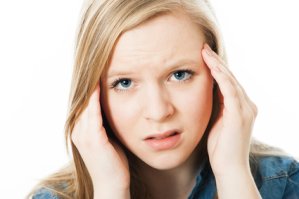Many migraine sufferers lack Q10 and vitamins
A study has shown that many children and young people suffering from migraines lack coenzyme Q10 and several vitamins. While more research is needed before conclusions can be made, earlier studies have actually shown that Q10 supplementation may have a positive effect on migraine. Because migraine is common among  children and adults it is obvious to take a closer look at the underlying cause and compensate for any deficiencies.
children and adults it is obvious to take a closer look at the underlying cause and compensate for any deficiencies.
Migraines affect around 15% of the population, including one in eight children. The disease is believed to cost millions of lost work days and school days every year, which is why there is every reason in the world to find effective ways to reduce the risk of migraine headaches and the pain they involve. There is evidence suggesting that lack of Q10 and several vitamins may be part of the explanation.
Deficiencies and supplements
According to a study, a large percentage of children and teenagers with migraines lack vitamin D, vitamin B2 (riboflavin) and Q10, a compound that is involved in the energy turnover in all cells. Dr. Suzanne Hagler, Cincinnati Children's Hospital Medical Center, in the United States, who headed the study says that more studies are needed in order to conclude whether supplements of Q10 and vitamins are an effective therapy as such and if patients with actual deficiencies are more likely to benefit from taking such supplements.
Dr. Hagler collected data from a database of migraine sufferers who, according to the hospital's headache center, had submitted blood samples to be analyzed for vitamin D, vitamin B2, folic acid, and Q10. According to earlier research, these nutrients had been involved in migraine, albeit with differing results. Many of the migraine sufferers received preventative migraine medication and were also given supplements of vitamins in cases where they had deficiencies. However, because relatively few participants were given vitamin supplements, the researchers were not able to determine if the supplements were generally effective for preventing migraines.
Q10 and the brain's energy consumptionQ10 takes active part in the energy turnover of all cells, and the brain alone consumes around 20 per cent of the body's energy. Therefore the brain requires very large quantities of Q10, even though it only weighs around 1,300 grams. |
Difference between sexes in lack of Q10 and vitamins
According to Suzanne Hagler's study, girls and young women were more likely to lack Q10 than boys and young men. On the other hand, boys and young men were more likely to have low levels of vitamin D. Lack of folic acid was difficult to determine. Nonetheless, patients with chronic migraine had a greater tendency to lack Q10 and vitamin B2 compared with patients who only had transient migraines.
High-dosed Q10 supplements may reduce migraine days by 50%
Earlier studies have shown that high-dosed Q10 supplements have a positive effect on migraine headaches. In an open study where participants were given 150 mg of Q10 daily, 61 per cent of the patients observed that the treatment reduced the number of days with migraine by over 50%. In a double-blind placebo-controlled study that was conducted at the University Hospital in Zurich, Switzerland, the participants were given higher doses of Q10 (3 x 100 mg). Here, fewer attacks and fewer days with migraine were also observed.
As mentioned earlier, it is not uncommon that children who suffer from migraine also lack Q10. This was seen in a study that was published in 2007 in the scientific journal Headache. The study even demonstrated that Q10 supplementation for three months increased serum levels of Q10 in the body while leading to a significant reduction in both severity and duration of the migraine attacks. Because Q10 is a compound which the body has difficulty with absorbing it is important to choose a preparation that is manufactured in such a way the individual Q10 molecules can pass through the intestinal membrane and reach the bloodstream. Also, there should be documentation for the bioavailability and quality of the preparation.
With migraine it is important to make a note of triggering factors such as:
- Histamine-containing and histamine-releasing foods such as cheese, red wine, pickled and smoked foods, chocolate, and monosodium glutamate
- Stress and tension
- Low blood sugar and dehydration
- Smoke-filled rooms and poor indoor climate
- Birth control pills and hormonal changes - e.g. puberty and menopause
- Strong sunlight and electrosmog from computers, TVs etc.
References:
Cincinnati Children's Hospital Medical Center: Many with migraines have vitamin deficiencies, says study. Science Daily 2016
http://www.hovedpineforeningen.dk/laes-artikeler-om-born-og-unge/items/hovedpine-hos-born-og-unge-kan-og-skal-behandles.html
Hershey et al. Q10 and migraine. Headache 2007
Sandor P.S. et al., Q10 and Migraine. Neurology 2005
Pernille Lund: Q10 - fra helsekost til epokegørende medicin
http://www.netdoktor.dk/sygdomme/fakta/migraene.htm
Search for more information...
- Created on .








